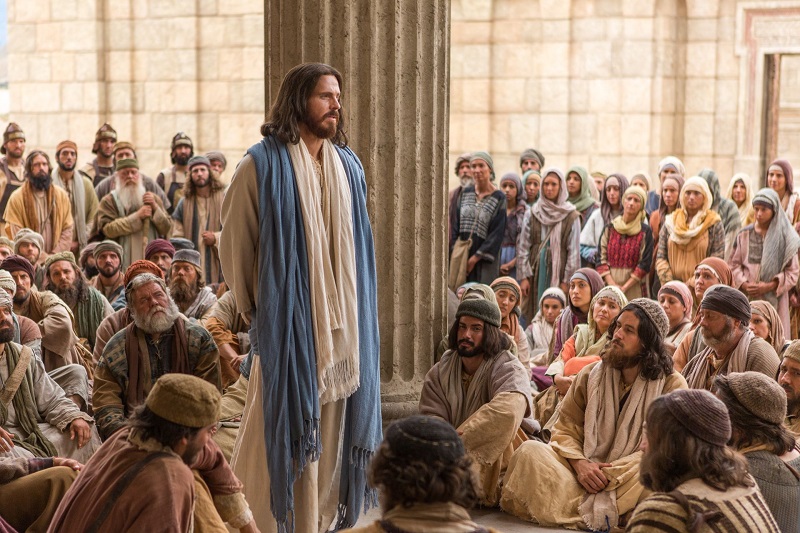In a world that often celebrates unwavering faith, the stories of Bible characters who doubted God remind us of the human experience and the complexities of belief.
From questioning divine promises to wrestling with their realities, these figures reveal a profound truth: doubt is not the antithesis of faith but rather an integral part of it.
Consider Moses, who hesitated at God’s call despite witnessing miracles firsthand, or Sarah, whose laughter echoed skepticism when faced with an impossible promise.
Their journeys highlight a shared struggle that resonates throughout generations—embracing uncertainty while seeking understanding.
As I delve into the lives of these remarkable individuals, I uncover more than just moments of hesitation; we find opportunities for spiritual growth and transformation.
Each instance of doubt serves as a catalyst for deeper revelations about trust and reliance on God’s plan.
In exploring these biblical narratives, I invite readers to reflect on their own experiences with doubt and discover how questioning can ultimately lead to a strengthened faith.
Join me as I explore the rich tapestry woven by those who dared to challenge divine assurance yet emerged with renewed conviction and purpose.
✅ The 5 Examples of Bible Characters Who Doubted God

In this section, we will explore some examples of major Bible characters who have expressed uncertainty or doubt toward God in one way or another.
1. Abraham
Abraham, the patriarch revered for his unwavering faith, is a fascinating study when exploring the theme of doubt among Bible characters.
Though often celebrated for obeying God’s call to leave his homeland, Abraham’s journey was not devoid of uncertainty.
When faced with the promise of a son at an advanced age, he momentarily faltered—yielding to disbelief and seeking alternatives that seemed more practical.
This reluctance culminated in the birth of Ishmael through Hagar, revealing how human impatience can cloud divine promises.
What makes Abraham’s story compelling is not just his moments of doubt but also how these experiences deepened his relationship with God.
Instead of being cast aside for his lack of faith, he was given chances for reaffirmation through God’s covenant—reminding us that doubt doesn’t disqualify us from grace or purpose.
Ultimately, each hesitant step and faltering question laid the groundwork for profound revelation; it illustrates that even those ordained by destiny grapple with vulnerability and fear.
This nuanced portrait invites readers to rethink their struggles with faith, understanding that even giants like Abraham experienced moments where trust wavered yet were met by divine patience and love.
2. Moses
Moses, a towering figure in the Bible renowned for leading the Israelites out of slavery, is often seen as a paragon of faith.
Yet, beneath his monumental leadership lies a profound struggle with doubt that makes his journey all the more relatable.
When God called him from the burning bush to confront Pharaoh and liberate His people, Moses responded not with eagerness but with trepidation and excuses.
“Who am I that I should go to Pharaoh?” he questioned (Exodus 3:11), revealing an internal dialogue filled with insecurity about his abilities and purpose.
This initial hesitation didn’t wane easily; in fact, it resurfaced multiple times throughout Moses’ mission.
When faced with insurmountable challenges—like when the Israelites panicked at the Red Sea or grumbled for food in barren lands—Moses often found himself wrestling with despair and uncertainty.
His consistent dialogue with God was colored by doubt, prompting heartfelt pleas like “If Your presence does not go with us, do not send us up from here” (Exodus 33:15).
This candid portrayal of Moses showcases how even those chosen for grand purposes grappled profoundly with their faith during moments of crisis.
In recognizing this aspect of his character, we appreciate that doubt can coexist alongside divine calling, suggesting that belief doesn’t always sweep away unease but rather transforms it into a deeper reliance on God’s promises.
3. Gideon
Gideon stands out among biblical figures who doubted God, demonstrating that even the most revered heroes wrestled with uncertainty.
When called by God to confront the Midianite army, Gideon’s immediate instinct was not one of valor but skepticism.
He questioned his own capabilities and even demanded signs from God to validate His promise, famously laying a fleece out on the ground, seeking assurance in the form of dew.
This moment reflects a profound truth: that doubt can coexist with faith and be part of our spiritual journey.
In modern contexts, Gideon embodies the struggle many believers face when confronted with daunting challenges or responsibilities.
His hesitation mirrors our moments of doubt—when we question whether we’re truly equipped for what lies ahead or if we’re worthy of divine purpose.
Yet, God’s response to Gideon’s doubts was not rebuke but gentle affirmation; He met Gideon where he was, transforming fear into courage.
This interaction underscores a vital lesson: faith is often forged in the crucible of questioning and vulnerability—an invitation for us all to bring our doubts before God rather than hiding them away.
4. Thomas
Thomas, often dubbed Doubting Thomas, represents a profound aspect of faith that many can relate to—questioning and uncertainty.
When the other disciples excitedly shared their encounter with the risen Christ, Thomas was not swept away by their enthusiasm. Instead, he boldly articulated his skepticism, proclaiming that unless he could see Jesus’ wounds and feel his side, he would not believe.
This moment offers a window into human vulnerability; doubt isn’t an enemy of faith but rather an integral part of the journey toward deeper understanding.
What’s striking about Thomas is how Jesus meets him in his doubt rather than reprimanding him.
The resurrected Christ invites him to touch His wounds and experience firsthand the reality of His resurrection—a poignant reminder that God honors our questions and desires for intimacy amidst our struggles.
This act shows a personalized approach to belief; it’s not just about blind faith but about nurturing a relationship where doubts can be expressed openly.
Thus, Thomas’s story transforms from one of mere skepticism into a powerful invitation for believers today: God welcomes our uncertainties and uses them as stepping stones toward richer spiritual insight and conviction.
5. Jonah
Jonah’s story is a profound exploration of human reluctance in the face of divine command.
Despite being chosen as a prophet, his journey begins with profound doubt and disobedience; he attempts to flee from God’s call to deliver a message of repentance to Nineveh.
This initial act of defiance reveals a common struggle among people in the Bible who doubted God—an internal conflict between personal comfort and the daunting tasks that faith can impose.
Jonah’s experience teaches us that doubt is not necessarily an absence of faith but often stems from fear and misunderstanding of God’s intentions.
As Jonah finds himself swallowed by a great fish, we see how his time in darkness becomes transformative.
It serves as an opportunity for reflection, highlighting that moments of despair can catalyze spiritual growth.
Instead of casting him aside, God uses Jonah’s struggle to showcase mercy—and even when he does fulfill his mission after much strife, he still wrestles with resentment over God’s compassion toward those he deemed unworthy.
This tension invites readers to consider how their perceptions of justice can clash with divine grace, challenging us all to embrace humility and trust—even when our circumstances lead us into uncertainty or discomfort.
What Does the Bible Say About Doubt?

Doubt in the Bible is often perceived as a sign of weakness or lack of faith, yet it frequently emerges as a profound catalyst for personal and spiritual growth.
For example, Thomas’s skepticism about Jesus’ resurrection—often labeled Doubting Thomas—provides a compelling narrative that invites deeper examination.
Rather than casting him solely as an unbeliever, this story underscores how moments of doubt can lead to transformative experiences.
Thomas’s eventual encounter with the risen Christ affirms that questioning can deepen faith rather than undermine it.
Moreover, biblical figures like Job exemplify how grappling with doubt doesn’t equate to abandoning belief; instead, it’s part of an honest dialogue with God.
The raw emotions depicted in Job’s lament allow readers to understand that expressing uncertainty is vital within one’s spiritual journey.
This signifies a relationship built on authenticity rather than blind obedience.
By embracing what the Bible says about doubt, believers may find that such struggles are not stumbling blocks but stepping stones toward a more nuanced and resilient faith experience.
Ultimately, doubt can be recognized as an invitation—to explore questions deeply and seek answers within the sacred texts and personal reflection alike.
✅ 3 Lessons to Learn from Bible Characters Who Doubted God

This section we will explore some of the lessons we can take away from Bible characters who experienced doubts about God and His promises.
I. The Importance of Honesty and Transparency in Doubt
The Bible is full of stories and teachings that emphasize the importance of honesty and transparency in all aspects of life, including doubt.
Doubt is a natural part of our human experience, and it can sometimes be difficult to confront our doubts with honesty and openness.
However, the Bible teaches us that being transparent about our doubts is important not only for our own personal growth but also for building strong relationships with others.
One example of this can be found in the book of James, where it says “if any of you lacks wisdom, let him ask God, who gives generously to all without reproach, and it will be given him” (James 1:5 ESV).
This verse emphasizes the importance of seeking wisdom from God when we have doubts or questions.
By being honest about our doubts and seeking guidance from God, we can cultivate a deeper understanding of ourselves and grow closer to Him.
2. The Role of Faith in Overcoming Doubt
The Bible teaches that faith plays a crucial role in overcoming doubt. Doubt is something that plagues every human being at some point in their life.
It can lead to fear and uncertainty, making it difficult to move forward with confidence. However, the Bible provides us with a roadmap for overcoming these doubts through faith.
In Hebrews 11:1, we read “Now faith is the assurance of things hoped for, the conviction of things not seen.”
This verse shows us that faith is not just merely believing in something; it’s having absolute certainty and trust in God even when we cannot see or understand what He’s doing in our lives.
When we have this kind of faith, it frees us from the grip of doubt and enables us to move forward with confidence.
3. The Power of Questioning and Seeking Answers
The Bible is a powerful book that has been guiding people for centuries.
One of the most important teachings in the Bible is the value of questioning and seeking answers.
The power of questioning and seeking answers according to the Bible can help us find meaning and purpose in our lives.
Asking questions is an essential part of learning and growing. In the Bible, we see many examples of people who asked questions to gain understanding.
Jesus himself often posed questions to his followers, encouraging them to think deeply about their beliefs and actions.
Proverbs 2:3-5 says, “Yes, if you cry out for discernment, And lift up your voice for understanding… Then you will understand the fear of the Lord, And find knowledge of God.”
This passage highlights how seeking answers can lead us closer to God. Questioning also helps us overcome doubts and uncertainty.
Bible Characters Who Doubted God (Summary)
In exploring the lives of Bible characters who wrestled with doubt, we see that even the most faithful can experience moments of uncertainty and fear.
From Moses’ hesitations to Gideon’s requests for signs, these narratives remind us that doubt is a natural part of faith’s journey.
Rather than discrediting their beliefs, these struggles often led to deeper understanding and stronger convictions.
They exemplify that questioning can lead to growth and a more profound relationship with God.
As we reflect on their stories, let us embrace our doubts as opportunities for exploration and connection in our spiritual lives.
Other Blog Posts
- 5 Bible Characters Who Didn’t Give Up
- 5 Bible Characters Who Changed from Bad to Good
- 5 Bible Characters Who Failed God

Grounded in faith and driven by purpose, I’m a Christian blogger and online research specialist with a passion for God’s Word, lifelong learning, and healthy living.
